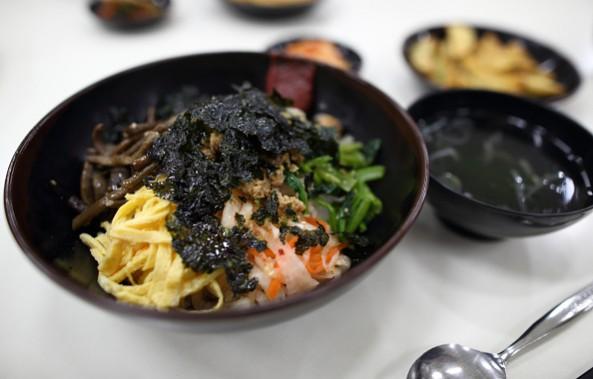
Koreans are hearty eaters but they also make sure that the portion sizes are controlled. A typical Korean meal is heavy on sprouts, mushrooms, tofu, pickled vegetables, and soup. Rice is the most important part of each meal in Korea. They stay clear away from bread and processed meat.
Korean cuisine comprises a balanced meal combination of grilled protein and rice accompanied with various fermented vegetables like kimchi and miso paste. Koreans mandatorily consume fermented food with every meal and eat sweets in moderation.
Street food is a craze in Korea. Unlike the fast-food chains in the rest of the world, Korean street food follows the traditional snacks of Korea like Pajeon- a savoury pancake; Gimbap- seaweed rolled with steamed rice, meat and vegetables; mandu- dumplings; tteokbokki- rice cakes; Bungeoppangs- fish shaped desserts and Korean barbeque to name just a few. Consuming such traditional fast food is an everyday tradition and satiates the urge to eat junk.
Koreans are also known for their love for seafood and more specifically seaweed. Crispy seaweed is given to children as a snack or added as a salad dressing. Another famous Korean ingredient is Tofu which is added generously to every stew. Loaded with protein, tofu fills up the stomach minus the calories found in meat.
Koreans drink barley tea instead of soda. In spite of its uncanny smell and taste, Korean swear by the miraculous unsweetened drink which increases blood circulation, aiding digestion while providing the body with the much-needed antioxidants.
The stomach is often termed as the "second brain", which silently rules our overall health. The ubiquitous cabbage kimchi is loaded with minerals, vitamin A, B and C, dense with gut friendly probiotics and literally fat-free.
A Korean meal is generously accompanied by bowls of banchans consisting of marinated spinach, bean sprouts, fish cakes and much more. While awaiting food, Korean restaurants do not offer munchies; instead, there is a generous helping of banchan and salads filling the stomach with healthier options.
Koreans believe that what we put inside out body is directly proportional to how we look and feel outside. Additionally, Koreans burn out the extra calories by walking. It is a common sight to see young and old Koreans trekking or walking going about with their chores. With numerous health benefits, Korean food is likely to catch up with the Korean wave.

















